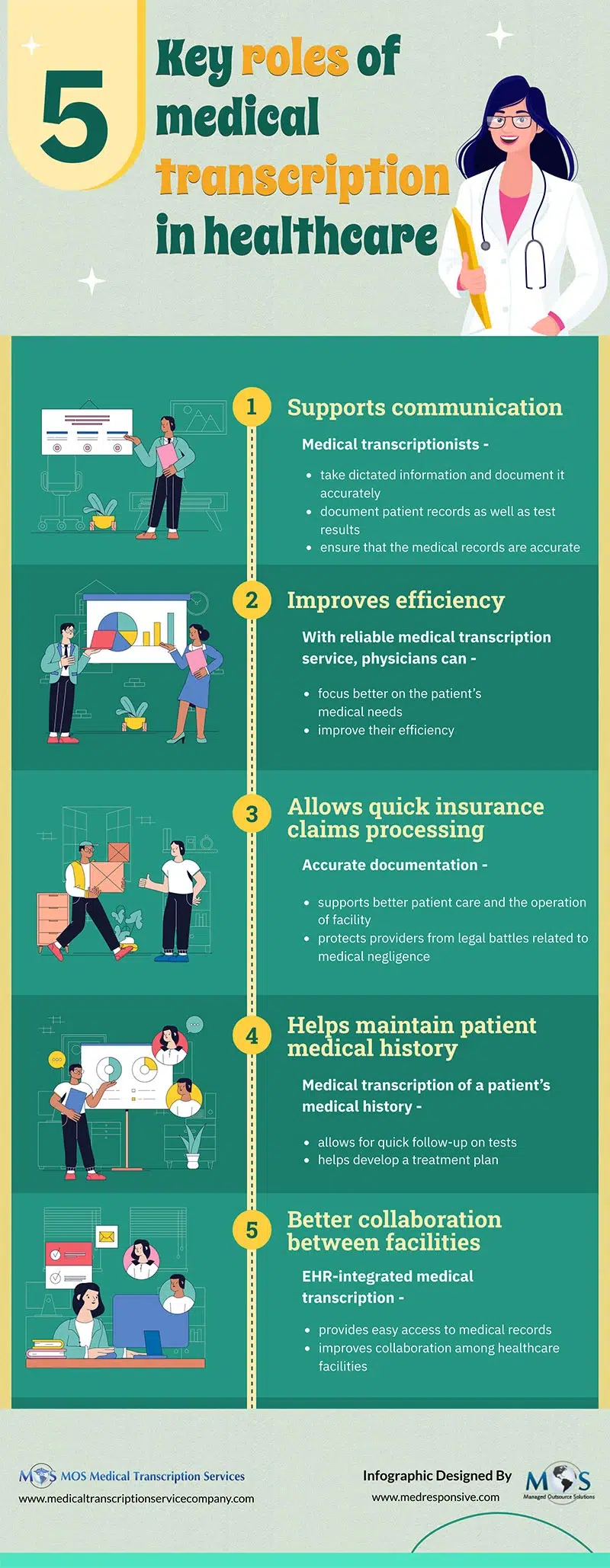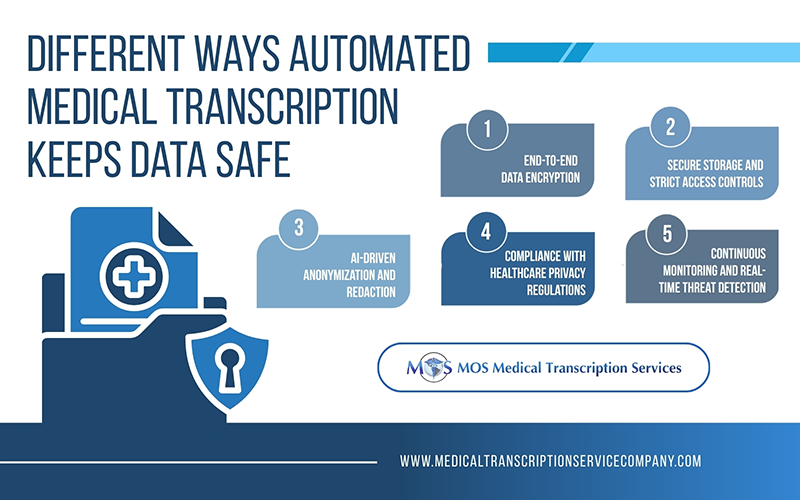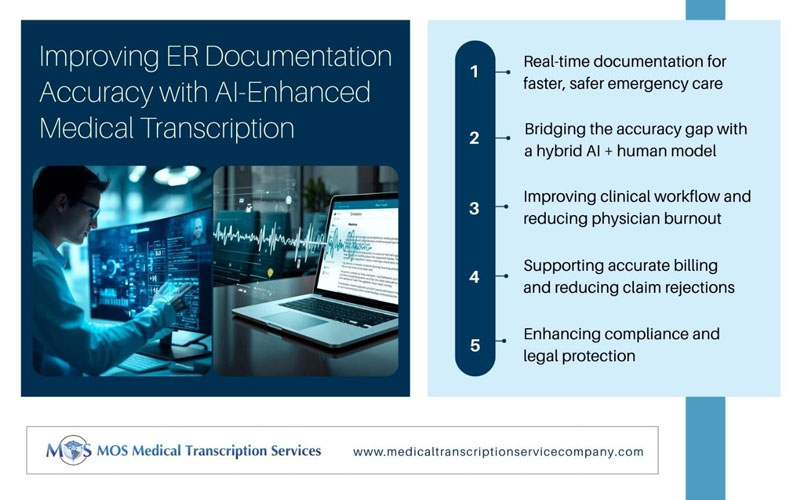
Table of Contents
The role of medical transcription is rising in significance owing to the increased demand for healthcare services and consequent increase in documentation requirements. Medical transcription in healthcare focuses on ensuring reliable, accurate, and timely documentation of clinicians’ notes and dictations. Most physicians rely on professional medical transcription services for maintaining error-free medical records, and free up more time to focus on patient care.
Key Challenges of Medical Transcription in Healthcare:
Many physicians consider clinical documentation a burdensome task that reduces face time with patients, and drives burnout. Published in 2021, a study titled Analysis of Electronic Health Record Use and Clinical Productivity and Their Association with Physician Turnover evaluated data from 314 medical professionals in an effort to determine whether medical records and physician departure or resignations are related. They found that clinicians could spend up to 5.8 hours managing medical records for every eight hours of scheduled patient time.
Another cross-sectional study titled Medical Documentation Burden Among US Office-Based Physicians in 2019: A National Study published in 2022, analyzed office-based physician responses to the 2019 National Electronic Health Records Survey. The 1524 respondents represented 301 603 physicians nationwide. This study also revealed that documentation burdens US physicians. Most respondents indicated that documentation takes time from patient care.
While accurate medical records are essential for diagnosis and treatment, the electronic medical documentation workflow is burdened by bureaucratic requirements. Rigid documentation structures and strict administrative standards are making things extremely difficult for physicians. These challenges highlight the importance of clinical transcription in hospitals, where skilled medical transcriptionists can help ease documentation burdens, improve accuracy, and give physicians more time to focus on patient care.
How Medical Transcription Services Help
Medical transcriptionists are highly trained professionals who undergo extensive training to ensure they can perform their jobs well. They ensure that medical dictations or recordings are transcribed into accurate and reliable medical records while also abiding by HIPAA regulations. By delivering proper and timely information on a patient’s condition to physicians and other healthcare workers, transcription services support provider collaboration and quality care. By documenting, organizing, and capturing patient data, transcription services offer a simplified method for recording patient care. In addition to supporting patient treatment, these records have legal value as they can be cited in insurance and medical malpractice lawsuits.
Transcription services offer several benefits:
- Improved Accuracy: When it comes to medical records, accuracy is crucial. Documentation errors can lead to erroneous diagnosis, ineffective therapies, and put a patient’s life in jeopardy. With a 99%+ accuracy rate guaranteed by its staff of human editors and cutting-edge speech-to-text technology, medical transcription services enhance care delivery and patient safety.
- Timely Charting: Time is critical in healthcare settings. Patient treatment may be greatly impacted by the speed at which medical records are transcribed and made available. Healthcare providers gain rapid transcribing turnaround times. This makes it possible for physicians to quickly obtain the information they require, resulting in quicker and more efficient patient treatment.
- Simplified Procedures: The administrative workload that healthcare providers face is always growing. By automating the process of turning spoken words into written text, transcription helps optimize workflows. This lessens the need for manual data input, reduces risk of clinician burnout, and frees up providers to devote their attention to patient care rather than administrative work.
- Improved Information Security: The healthcare industry places a high value on confidentiality, and any data breach can have dire consequences. Sensitive patient data is always protected thanks to secure technology in transcription companies, which helps healthcare practitioners abide by laws like HITECH and HIPAA.
- Multidisciplinary Communication: Integrative patient care requires efficient communication across various departments and expertise. Transcribing reports allows clinicians to quickly share them with involved parties such as nurses, specialists, and primary care doctors. This guarantees that all providers are in agreement with regards to a patient’s care plan.
Medical transcription services are integral to the efficient functioning of the healthcare system. They enhance accuracy and consistency in patient records, save time for healthcare providers, improve patient care, support EHR integration, and ensure compliance with legal standards. Proper formatting of medical documentation is crucial for clarity, consistency, and ease of use, and these services ensure that all records are accurately structured according to industry standards and provider preferences.
By outsourcing medical transcription for healthcare facilities, healthcare organizations can focus on providing high-quality patient care while benefiting from streamlined operations and improved documentation practices. Reliable providers have multilevel transcription quality assurance practices in place that ensure that all documentation meets the highest standards of accuracy and compliance, reinforcing the critical role of transcription in today’s medical environment.



